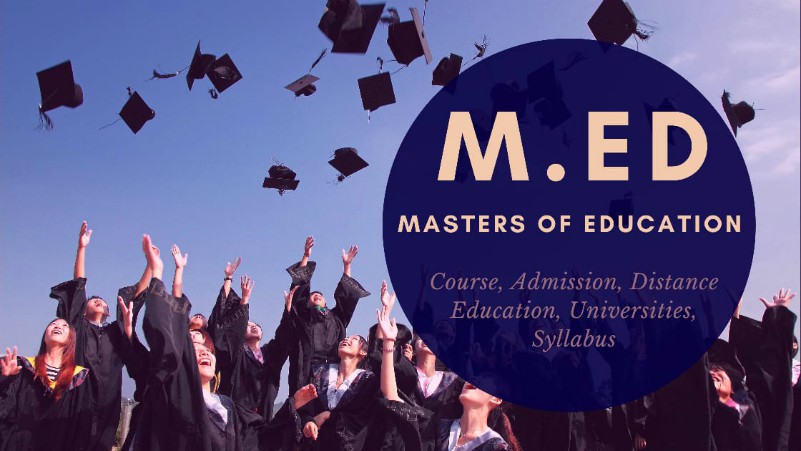Difference between B.Ed and M.Ed Programme
Education is the cornerstone of personal and societal growth, and educators play a vital role in shaping the future. Pursuing a career in education often begins with obtaining a Bachelor of Education (B.Ed) degree and can be followed by further specialization with a Master of Education (M.Ed) degree. In this article, we will delve into the distinctions between these two degrees, exploring their objectives, curriculum, career prospects, and the essential factors to consider when deciding between them.
Understanding B.Ed: The Foundation
A Bachelor of Education (B.Ed) is an undergraduate academic program tailored to impart individuals with the essential knowledge, competencies, and teaching techniques required to excel as effective educators in primary or secondary school settings. This curriculum commonly serves as a foundational pathway for individuals with aspirations of pursuing a career in teaching.
Duration and Entry Requirements
B.Ed programs usually span three to four years, depending on the country and institution. Admission prerequisites fluctuate, yet typically, a secondary school diploma or an equivalent qualification is obligatory. Furthermore, potential B.Ed candidates might be required to successfully complete an entrance exam or fulfill particular academic criteria.

Curriculum
The B.Ed curriculum primarily focuses on the fundamentals of teaching, including subjects like educational psychology, classroom management, curriculum development, and teaching methods. Students often engage in practical teaching experiences, known as practicums or teaching internships, which allow them to apply classroom theory in real educational settings.
Specializations
B.Ed programs may offer specializations, such as elementary education, secondary education, special education, or subject-specific teaching. These specializations enable students to focus on their preferred teaching area.
Career Prospects
Upon completing a B.Ed degree and obtaining teaching certification, graduates are eligible to work as teachers in primary and secondary schools. B.Ed graduates can also explore opportunities in educational administration, curriculum development, and education consultancy.
Understanding M.Ed: The Path to Specialization
An M.Ed, a beacon of educational excellence, empowers educators to hone their expertise, specializing in distinct realms of pedagogy, refining their instructional prowess, and embarking on advanced research journeys, offering a transformative path for those seeking to elevate their educational careers and immerse themselves in the rich tapestry of educational theory and practice.
Duration and Entry Requirements
M.Ed programs typically last one to two years, with entry requirements typically including a B.Ed or equivalent degree. Some programs may also require a specific grade point average and letters of recommendation.
Curriculum
M.Ed programs offer a wide range of specializations, such as educational leadership, curriculum and instruction, educational technology, special education, and more. The curriculum is research-intensive and emphasizes critical analysis and in-depth understanding of educational issues.
Specializations
One of the primary distinctions between B.Ed and M.Ed programs is the opportunity for specialization. M.Ed students can tailor their education to their specific interests and career goals. This allows educators to become experts in their chosen field within education.
Career Prospects
An M.Ed degree can open up various career paths. Graduates can become educational leaders, curriculum developers, instructional designers, educational consultants, or researchers. M.Ed graduates often command higher salaries and greater career advancement opportunities compared to B.Ed graduates.
Choosing Between B.Ed and M.Ed
The choice between a B.Ed and an M.Ed depends on your career goals, interests, and where you are in your educational journey.
Career Aspirations
If your primary goal is to become a classroom teacher and positively impact students’ lives at the primary or secondary level, a B.Ed is the more appropriate choice. It provides the necessary skills and credentials to enter the teaching profession.

Specialization and Advancement
If you aim to specialize in a specific area of education, pursue leadership roles in education, or engage in educational research, an M.Ed is the better option. It allows you to delve deeper into educational theory and practice, making you a subject matter expert in your chosen field.
Financial Considerations
B.Ed programs are generally more affordable than M.Ed programs, and they typically require less time to complete. Consider your financial situation and the return on investment when making your decision.
Current Education Level
If you’ve already acquired a B.Ed and currently teach, exploring an M.Ed can be a transformative step, offering a platform to amplify your expertise and propel your professional journey; numerous M.Ed programs are tailored to support educators with active careers.
Conclusion
Both B.Ed and M.Ed degrees are essential in the field of education, but they serve different purposes. A B.Ed degree is an excellent choice for those seeking to become teachers and positively influence students’ lives. On the other hand, an M.Ed degree is tailored for educators who wish to specialize, advance their careers, or engage in educational research.
The decision between these degrees should be based on your career aspirations, interests, financial considerations, and current educational level. Whichever path you choose, both B.Ed and M.Ed degrees contribute to the betterment of education and society as a whole by producing competent and dedicated educators.
Read More:- 10 THOUGHTFUL QUESTIONS FOR PARENTS TO ASK DURING PARENT-TEACHER MEETINGS
Read More:- Navigating the Intellectual Odyssey: Unveiling the KVPY Exam



